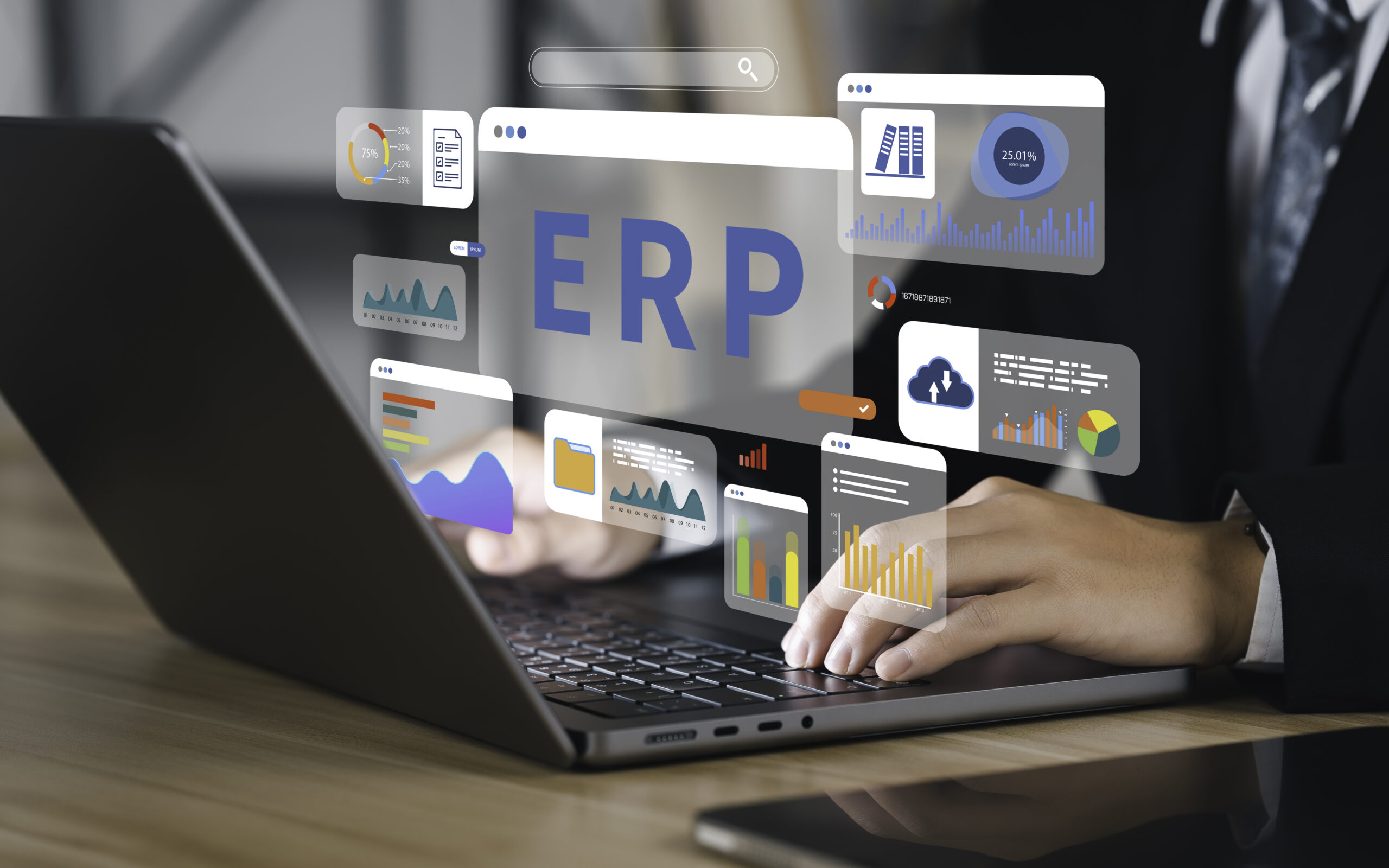ERP is a term you’ll often hear when businesses talk about improving operations.
But what does it really mean? And more importantly, how does it help?
This guide explains ERP in clear terms.
You’ll learn what ERP software does, why businesses use it, and how platforms like NetSuite, supported by Cumula 3 Group, make it easier to run a more connected, efficient business.
Thinking about ERP for your business? Start with trusted guidance and NetSuite pricing from Cumula 3 Group.
Understanding ERP: What It Means and How It Helps
ERP stands for Enterprise Resource Planning. It’s a type of business software that brings key processes—like finance, purchasing, inventory, HR, and customer service—into a single system.
Why companies use ERP
An ERP system gives everyone access to the same, accurate data.
When teams work from different tools, data gets duplicated or lost. That slows down decisions and creates extra work.
By using ERP, companies:
- Cut down on manual tasks
- Improve reporting accuracy
- Reduce system-related delays and errors
- Gain clearer insight into performance
- Standardize and automate workflows across departments
Whether you’re managing a warehouse, running a service business, or operating multiple locations, ERP creates consistency and transparency across operations.
NetSuite is one of the most widely used cloud ERP systems for this reason. It offers built-in modules for nearly every business function and can scale with your growth.
When selecting the best ERP software, companies should focus on solutions that address their specific industry needs while providing flexibility for future growth.
ALSO READ:
→ Manufacturing ERP Must-Haves: 15 Considerations
→ Food & Beverage ERP Requirements
→ Metal Fabrication Software Buying Guide
→ The True Cost of Not Investing in Warehouse Management Software
6 Core Features of a Modern ERP System
Every ERP system has its own approach, but most offer a set of core features that support everyday operations.
Below are the essential modules included in most ERP platforms today, with examples of how NetSuite delivers them.
1. Financial Management
Handles general ledger, accounts receivable/payable, budgeting, and financial reporting.
With NetSuite: You get real-time financials, automated billing, and compliance-ready reporting tools. It supports multi-currency and multi-entity setups out of the box. NetSuite’s account reconciliation features can significantly streamline financial processes.
2. Inventory and Order Management
Tracks inventory levels, manages supply chain processes, and streamlines procurement and fulfillment.
With NetSuite: Inventory is synced across locations, eCommerce, and sales channels. You can manage warehouse operations with built-in or integrated WMS features. For retailers, NetSuite’s retail capabilities offer specialized inventory management.
3. Customer Relationship Management (CRM)
Maintains contact records, purchase history, sales pipelines, and customer communications in one place.
With NetSuite: Sales, marketing, and support teams work from the same data, making lead management and post-sale service more efficient. This creates a powerful alternative to standalone CRM systems like Salesforce.
4. Human Capital Management (HCM)
Supports HR tasks such as recruiting, onboarding, time tracking, payroll, and performance reviews.
With NetSuite: HR teams get one place to manage employee data, benefits, and time-off tracking with SuitePeople.
5. Project Management
Tracks time, budgets, milestones, and resources across client projects or internal initiatives.
With NetSuite: You can plan and track projects in real time, linking them directly to billing and financial reporting. Professional services firms particularly benefit from these capabilities.
6. Business Intelligence & Reporting
Creates dashboards, reports, and real-time metrics that help with forecasting and decision-making.
With NetSuite: Every role in your business can access tailored dashboards with KPIs, alerts, and drill-down capabilities. NetSuite’s AI features are enhancing these reporting capabilities even further.
These features form the foundation of a strong ERP system. When used together, they help eliminate disconnected processes and provide a clear picture of how your business is performing.
NetSuite brings all of these capabilities into one platform, giving your team better control, visibility, and efficiency across every area of the business.
To explore more about NetSuite’s ERP capabilities, click here.
ALSO READ:
→ NetSuite Add-Ons: A Guide to Enhancing Your Experience
→ 10 Tips for Complying with Sales Tax Regulations
→ Why AI is the Future of Cloud ERP Systems
→ NetSuite Implementation Cost Guide
3 Types of ERP: Cloud, On-Premise, and Hybrid
How your ERP is deployed affects cost, maintenance, and flexibility.
Businesses generally choose from three deployment models:
1. Cloud ERP
Hosted by the provider and accessed through a browser. No physical servers needed. Fast setup, lower upfront costs, and automatic updates. Good for remote teams and growing businesses.
→ NetSuite is a true cloud ERP, built from the ground up for online access.
2. On-Premise ERP
Installed locally on your company’s hardware. Offers more control but also more responsibility for updates, backups, and IT support.
→ On-premise ERP is typically used by large enterprises or industries with specific data hosting requirements.
3. Hybrid ERP
Combines both cloud and on-premise elements. Offers some flexibility, but managing it requires more technical oversight.
For most businesses today, cloud ERP offers the best balance of cost, speed, and scalability.
Choosing the right deployment model depends on your team size, infrastructure, and long-term goals.
Many growing businesses now prefer cloud ERP for its flexibility and lower maintenance demands.
NetSuite delivers this model with built-in reliability and scalability, making it a strong fit for teams that want to move quickly without heavy IT involvement.
ALSO READ:
→ NetSuite vs SAP S/4HANA Comparison
→ NetSuite vs Epicor: Which ERP is Best?
→ NetSuite vs Business Central Guide
→ NetSuite vs Great Plains Comparison
Why NetSuite Is a Smart ERP Choice (And Why Cumula 3 Group Is the Right Partner)
There are many ERP platforms on the market.
NetSuite has become a go-to choice for growing companies because it is flexible, scalable, and covers a wide range of business needs in one system.
Benefits of choosing NetSuite:
- Built for the cloud from day one
- Used by over 41,000 organizations globally
- Supports multi-subsidiary, multi-currency, and tax compliance
- Includes pre-configured templates for software, retail, manufacturing, and more
- Easily connects with eCommerce, CRM, and warehouse systems
Start here to explore NetSuite ERP in more detail.
Why work with Cumula 3 Group
NetSuite works best when it’s tailored to how your business runs.
That’s where Cumula 3 Group comes in. We’re an award-winning NetSuite Solution Provider that’s helped organizations across industries implement and optimize NetSuite.
What we offer:
- Hands-on implementation that aligns with your processes
- Licensing, system design, and setup in one place
- Industry knowledge that shortens your time to value
- Ongoing support after go-live to help you evolve with the system
We provide more than software by helping businesses use it effectively to improve daily operations and long-term results. Our approach has proven successful for companies across various sectors:
- Manufacturing companies
- Construction firms
- Software businesses
- Healthcare organizations
- Food and beverage producers
- Retail operations
Getting implementation right matters tremendously.
Read our insider advice before starting your NetSuite implementation for tips on ensuring success.
View Cumula 3 Group’s services for more details.
ALSO READ:
→ NetSuite Alternatives: Analysis of 15 ERP Competitors
→ NetSuite vs Intacct: Which Cloud ERP Is Better?
→ How to Find the Right NetSuite Partner
→ SAP ECC to NetSuite Migration Guide
Conclusion – What is ERP
ERP systems connect your teams, processes, and data in one place.
This helps businesses reduce delays, avoid duplicate work, and act on better information.
Whether you’re growing fast or trying to get more from your current systems, ERP is a practical way to stay organized and move forward with confidence.
NetSuite gives you the tools to manage your business more effectively.
And with Cumula 3 Group, you get expert help from people who know how to make ERP work the right way for you.
Explore ERP with someone who understands your business. Cumula 3 Group has the NetSuite pricing and expertise to help.







